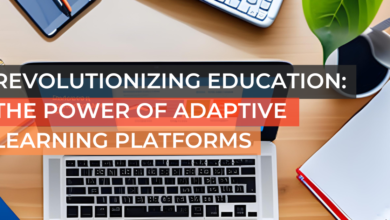Online College Courses: Revolutionizing Higher Education
Contents
- 1 Hello, Eager Readers: Embark on a Journey of Educational Discovery
- 2 Introduction to Online College Courses: A Comprehensive Overview
- 3 Strengths of Online College Courses: Enhancing Learning Opportunities
- 4 Weaknesses of Online College Courses: Addressing Potential Challenges
- 5 Choosing the Right Online College Course for You: A Step-by-Step Guide
- 6 Table: Comprehensive Overview of Online College Courses
- 7 FAQs: Answering Common Questions About Online College Courses
- 8 Conclusion: Embracing the Transformative Power of Online College Courses
Hello, Eager Readers: Embark on a Journey of Educational Discovery
In today’s rapidly evolving technological landscape, the realm of higher education has undergone a profound transformation. The advent of online college courses has shattered traditional barriers to learning, opening up access to a world of academic possibilities for individuals from all walks of life.
This article delves into the multifaceted world of online college courses, exploring their strengths and weaknesses, and providing a comprehensive guide to help you navigate this innovative educational landscape.
Introduction to Online College Courses: A Comprehensive Overview
Online college courses, also known as distance learning or e-learning, are educational programs delivered primarily or entirely through the internet. These courses offer a flexible and convenient alternative to traditional on-campus learning, allowing students to study at their own pace and from anywhere with an internet connection.
Online college courses encompass a wide range of subjects, including business, healthcare, technology, education, and the arts. They are typically offered at the undergraduate and graduate levels, and can lead to degrees, certificates, or other academic credentials.
Strengths of Online College Courses: Enhancing Learning Opportunities
Online college courses offer numerous advantages over traditional on-campus learning, including:
Flexibility: Online courses provide unparalleled flexibility, allowing students to study at their own pace and on their own schedule. This flexibility is particularly beneficial for working professionals, busy parents, and individuals with other commitments that may make it difficult to attend on-campus classes.
Convenience: Online courses eliminate the need for commuting to and from campus, saving students time and money. They also allow students to study from anywhere with an internet connection, making it possible to learn from the comfort of their own homes or any other convenient location.
Wider Course Selection: Online college courses often offer a wider selection of courses than traditional on-campus programs. This is especially true for specialized or niche subjects that may not be available at local colleges or universities.
Cost-Effectiveness: Online college courses are often more cost-effective than traditional on-campus programs. This is because online courses eliminate the need for physical infrastructure, such as classrooms and faculty offices. Additionally, online courses often have lower tuition costs than on-campus programs.
Weaknesses of Online College Courses: Addressing Potential Challenges
While online college courses offer numerous advantages, there are also some potential challenges to consider:
Lack of In-Person Interaction: Online courses lack the in-person interaction that is inherent in traditional on-campus learning. This can make it more difficult for students to connect with their instructors and classmates, and to receive the same level of personalized support.
Technology Requirements: Online courses require access to reliable internet and computer equipment. This can be a challenge for individuals who do not have adequate access to technology or who live in areas with poor internet connectivity.
Self-Discipline: Online courses require a high level of self-discipline and motivation. Students need to be able to manage their time effectively and stay on top of their coursework without the structure and support of a traditional classroom environment.
Choosing the Right Online College Course for You: A Step-by-Step Guide
Choosing the right online college course is essential to ensure a successful and rewarding learning experience. Consider the following steps:
1. Determine Your Educational Goals: Start by clearly defining your educational goals. What degree or certification are you seeking? What are your career aspirations? Once you have a clear understanding of your goals, you can start to research online college courses that align with your interests.
2. Research Online College Programs: There are numerous online college programs available, so it’s important to do your research and compare different options. Consider factors such as reputation, course offerings, tuition costs, and accreditation.
3. Seek Accreditation: Accreditation is an important indicator of the quality of an online college program. Make sure the program you choose is accredited by a recognized accrediting agency.
4. Check Technical Requirements: Make sure you have access to the necessary technology and internet connectivity to participate in the online course. If you don’t have the necessary equipment, you may need to upgrade or purchase new equipment before starting the course.
5. Consider Your Learning Style: Online courses require a high level of self-discipline and motivation. Consider your learning style and make sure that online learning is a good fit for you.
Table: Comprehensive Overview of Online College Courses
| Feature | Description |
|---|---|
| Flexibility | Online courses offer unparalleled flexibility, allowing students to study at their own pace and on their own schedule. |
| Convenience | Online courses eliminate the need for commuting to and from campus, saving students time and money. |
| Wider Course Selection | Online college courses often offer a wider selection of courses than traditional on-campus programs. |
| Cost-Effectiveness | Online college courses are often more cost-effective than traditional on-campus programs. |
| Lack of In-Person Interaction | Online courses lack the in-person interaction that is inherent in traditional on-campus learning. |
| Technology Requirements | Online courses require access to reliable internet and computer equipment. |
| Self-Discipline | Online courses require a high level of self-discipline and motivation. |
FAQs: Answering Common Questions About Online College Courses
**1. Are online college courses as good as traditional on-campus courses?**
Online college courses can be just as good as traditional on-campus courses, provided that they are offered by reputable institutions and meet high academic standards.
**2. Is online college right for me?**
Online college is a good option for individuals who are self-disciplined, motivated, and have access to reliable internet and computer equipment.
**3. How do I choose the right online college program?**
Start by determining your educational goals, researching online college programs, seeking accreditation, checking technical requirements, and considering your learning style.
**4. Are online college courses affordable?**
Online college courses are often more cost-effective than traditional on-campus programs due to lower tuition costs and the elimination of commuting expenses.
**5. Can I get a degree or certificate through an online college course?**
Yes, online college courses can lead to degrees, certificates, or other academic credentials.
**6. Do employers recognize online degrees?**
Yes, employers recognize online degrees from reputable institutions. However, it is important to research employers’ specific policies and requirements.
**7. How do I apply for an online college course?**
The application process for online college courses varies by institution. Visit the website of the college or university you are interested in for specific application requirements.
**8. What kind of support can I expect from an online college program?**
Online college programs typically offer a variety of support services, including online tutoring, technical support, and academic advising.
**9. How do I stay motivated in an online college course?**
Set clear goals, create a study schedule, and find a support network to help you stay motivated throughout your online college course.
**10. What are the benefits of taking an online college course?**
Benefits of taking an online college course include flexibility, convenience, wider course selection, and cost-effectiveness.
**11. What are the challenges of taking an online college course?**
Challenges of taking an online college course include lack of in-person interaction, technology requirements, and the need for self-discipline.
**12. How do I succeed in an online college course?**
To succeed in an online college course, be self-disciplined, manage your time effectively, participate actively in online discussions, and seek support when needed.
**13. What is the future of online college courses?**
The future of online college courses is bright, with continued growth and advancements in technology making online learning more accessible and effective.
Conclusion: Embracing the Transformative Power of Online College Courses
Online college courses have revolutionized the landscape of higher education, providing individuals with unprecedented opportunities to pursue their academic goals with flexibility, convenience, and cost-effectiveness.
While there are some challenges associated with online learning, the benefits far outweigh the drawbacks. By carefully considering your needs and goals, and by selecting a reputable online college program, you can unlock the transformative power of online education and achieve your academic aspirations.









